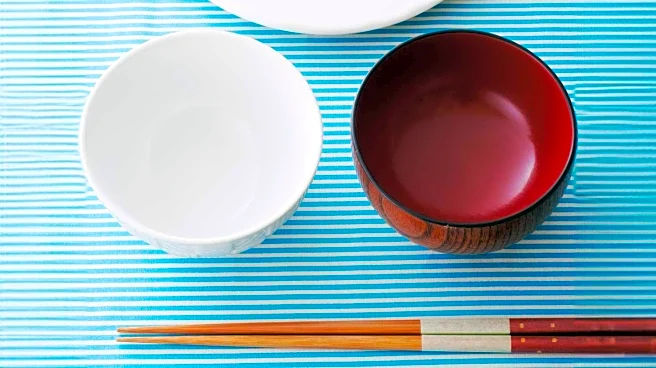What's Happening?
Danshari, a Japanese decluttering philosophy, is gaining attention for its holistic approach to tidying up. Unlike traditional cleaning methods, Danshari emphasizes a mental shift towards refusing unnecessary
items, disposing of unneeded possessions, and separating emotional attachments from material goods. This philosophy encourages individuals to prevent clutter from accumulating by adopting a mindful approach to their belongings. Experts suggest that Danshari can lead to lasting transformations in home organization and personal well-being, offering a sustainable alternative to quick-fix decluttering methods.
Why It's Important?
The rise of Danshari reflects a growing interest in sustainable and mindful living practices that prioritize mental clarity and long-term organization. By promoting a shift in mindset, Danshari offers a comprehensive solution to clutter, addressing both physical and psychological aspects of tidying up. This approach aligns with broader trends towards minimalism and intentional living, encouraging individuals to reevaluate their relationship with material possessions. As more people embrace Danshari, it may contribute to a cultural shift towards valuing simplicity and mindfulness in daily life.
What's Next?
As Danshari continues to gain popularity, it is likely that more individuals will adopt this philosophy to improve their home organization and mental well-being. The principles of Danshari may inspire the development of new decluttering techniques and tools that support mindful living. Additionally, the integration of Danshari into lifestyle and wellness programs could enhance its accessibility and appeal, encouraging wider adoption. Public interest in this philosophy may also lead to increased exploration of other cultural practices that promote sustainable and intentional living.
Beyond the Headlines
Danshari's emphasis on mindfulness and emotional detachment from material possessions highlights the ethical and cultural dimensions of decluttering. This philosophy challenges consumerist attitudes and encourages individuals to prioritize mental clarity and well-being over material accumulation. By fostering a deeper understanding of the impact of possessions on mental health, Danshari may contribute to a broader dialogue about the role of mindfulness in modern society. This approach underscores the importance of cultural exchange in shaping contemporary lifestyle practices.










